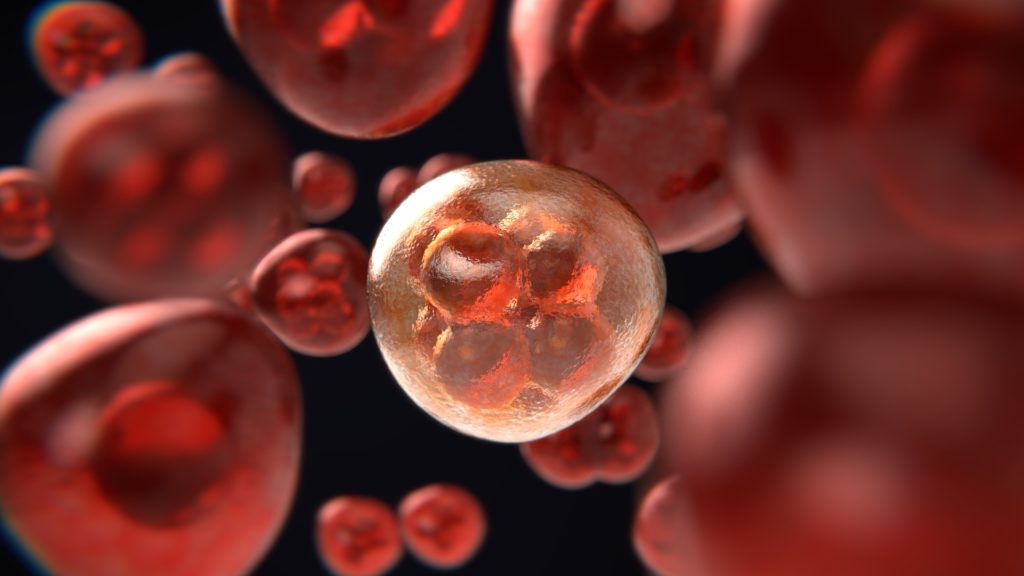Lymphoma is a cancer that starts in the lymphatic system. The lymphatic system is a network of organs and tissues that help fight infection and remove toxins from the body. Lymphoma can develop in any part of the lymphatic system, but it most commonly affects the nodes (glands) in the neck, armpits, or groin. In this blog post, we will discuss 10 symptoms of lymphoma that you should be aware of.

What Is Lymphoma?
Lymphoma is a type of cancer that starts in the lymphocytes, which are a type of white blood cell. There are two major types of lymphocytes: T-cells and B-cells. B-cells are responsible for making antibodies that help fight infection and T-cells help kill infected cells. Lymphocytes can be found in the lymph nodes, thymus, marrow, spleen, and other body parts. Lymphoma can develop in any of these areas.
There are two main types of lymphoma: Hodgkin’s lymphoma and non-Hodgkin’s lymphoma. Hodgkin’s lymphoma is a type of lymphoma that is more common in young adults, while non-Hodgkin’s lymphoma is more common in older adults. The cause of lymphoma is unknown, but it is thought to be related to a body’s malfunctioning immune system. Treatment for lymphoma typically involves chemotherapy and radiation therapy. The prognosis for patients with lymphoma depends on the stage of the disease at diagnosis and the response to treatment. Early-stage disease is usually more treatable than late-stage disease.
10 Symptoms Of Lymphoma
Symptoms of lymphoma can vary depending on the type of cancer and where it is in the body. Some of the common symptoms include:
Swollen Lymph Nodes
Lymph nodes are small, bean-shaped organs that are located throughout the body. They help to filter out bacteria and other harmful substances from the lymphatic fluid. Normally, lymph nodes are very small and cannot be seen or felt. However, they can become enlarged due to a build-up of immunity cells called lymphocytes. An enlarged lymph node may feel firm and rubbery, and it may appear as lumps under the skin. They may also cause pain or discomfort. Swollen lymph nodes are often one of the first signs that something is wrong. If you experience this symptom, it is important to see a doctor so that you can be properly diagnosed and treated.
Unexplained Weight Loss
While normal weight loss is often the result of a change in diet or lifestyle, lymphoma-related weight loss tends to be sudden and unexplained. This is often caused by the cancer cells spreading through the body and affecting the metabolism. The weight loss may be gradual or sudden, and it can occur even if the person is eating normally.

Chest Pain
One symptom of lymphoma is chest pain. This pain may be caused by the enlargement of the lymph nodes in the chest, or by cancer itself pressing on nearby organs. The pain may be sharp or dull, and it may occur on one or both sides of the chest. It may also worsen with deep breathing, coughing, or lying down. If you experience chest pain that does not go away or gets worse over time, it is important to see a doctor so that the cause can be determined and properly treated.
Itchy Skin
Itchy skin is a symptom of lymphoma, which is a cancer of the lymphatic system. Lymphoma may also cause an itchy rash. It is important to see a doctor if you have any symptoms of lymphoma, as it is treatable cancer. Early detection and treatment are essential for the best possible outcome.
Fatigue
Fatigue is a common symptom of lymphoma. It is often described as feeling very tired, even after rest. It can be caused by cancer itself or by treatments. Fatigue can be a difficult symptom to manage. Some tips to help manage fatigue include: getting regular physical activity, eating a healthy diet, getting enough sleep, and taking breaks during the day. If fatigue is severe, it is important to talk to a doctor about ways to manage it.

Fever
A fever is often one of the first symptoms of lymphoma. When cancerous cells form in the lymphatic system, they can cause a build-up of fluid that leads to swelling. In addition, the cancerous cells can interfere with the production of white blood cells, which can cause a range of other symptoms, including fever. While a fever is not always indicative of cancer, it is important to see a doctor if you experience a sudden onset of fever or if your fever does not respond to over-the-counter medications.
Night Sweats
A common symptom of lymphoma is night sweats, which are intense hot flashes that occur at night. Night sweats can drench your bedding and clothing and can make it difficult to get a good night’s sleep. Night sweats are often accompanied by other symptoms, such as fatigue, weight loss, and fever. If you experience night sweats, it’s important to see your doctor so that they can rule out other possible causes and begin appropriate treatment.
Breathlessness
One symptom of lymphoma is breathlessness. This can be caused by a buildup of fluid in the chest, known as chylothorax, or by an enlarged spleen pressing on the diaphragm. Breathlessness may also occur due to pressure on the lungs from an enlarged liver or cancerous lesions in the chest. In some cases, breathlessness may be the only symptom of lymphoma.
Swelling Of The Feet
One symptom of lymphoma is swelling of the feet. This can be caused by a build-up of lymph fluid in the tissues of the feet. The lymph fluid may also cause the feet to feel tight or full. In some cases, the swelling may be accompanied by pain, redness, or warmth.
Stomach Issues
One of the most common symptoms of lymphoma is discomfort in the stomach area. This can manifest as fullness, bloating, pain, or nausea. In some cases, the pain may be severe enough to interfere with eating or drinking.
Cough
Another symptom of lymphoma is a cough that does not go away. This is often caused by a buildup of fluid in the chest, which can put pressure on the lungs and make it difficult to breathe.

Treatments Of Lymphoma
Treatment options for lymphoma include radiation therapy, chemotherapy, and bone marrow transplant. The specific treatment recommended will depend on the type and stage of the lymphoma. In some cases, surgery may also be recommended to remove affected lymph nodes. With aggressive treatment, many people with lymphoma can achieve remission and go on to live normal, healthy lives.
Final Thoughts
Lymphoma is a cancer of the lymph system. It can occur at any age but is most common in people over the age of 60. Treatment for lymphoma depends on the type of cancer, the stage of the disease, and the patient’s overall health. With advances in treatment, most people with lymphoma can expect to live long and healthy lives.
Read More:



